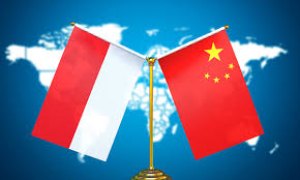Trade surplus strengthens economic resilience: BI
The Indonesian Central Bank (BI) has assessed that the trade balance surplus in November 2024 was positive to support the external resilience of the Indonesian economy.
It was commenting on a report by Statistics Indonesia (BPS) that Indonesia's trade balance surplus in November 2024 reached US$4.42 billion, an increase from the October 2024 surplus of US$2.48 billion.
"Moving forward, Bank Indonesia (BI) will continue to strengthen policy synergy with the government and other authorities to increase external resilience and support sustainable national economic growth," BI Spokesman, Ramdan Denny Prakoso, said in Jakarta, on Tuesday, December 17, 2024.
The higher trade balance surplus in November mainly came from an increase in the non-oil and gas trade balance surplus which recorded a surplus of US$5.67 billion, an increase compared to October 2024 which was US$4.80 billion. This development was supported by strong non-oil and gas exports which reached US$22.69 billion.
Non-oil and gas exports were supported by natural resource-based commodities such as nickel and its derivative products, as well as manufactured products such as iron and steel and machinery and mechanical equipment.
Based on the destination country, Indonesia's non-oil and gas exports still go to traditional countries, such as China, the United States, and India, which are the main contributors to Indonesia's exports.
Meanwhile, the oil and gas trade deficit decreased to US$1.25 billion in line with a larger decline in oil and gas imports compared to the decline in oil and gas exports.
Bank Indonesia is optimistic that the trade balance surplus will continue to support external stability and strengthen the Indonesian economy.
Going forward, Bank Indonesia projects a current account deficit that is maintained in a low range of 0.1 percent to 0.9 percent of GDP.
Already have an account? Sign In
-
Start reading
Freemium
-
Monthly Subscription
30% OFF$26.03
$37.19/MonthCancel anytime
This offer is open to all new subscribers!
Subscribe now -
Yearly Subscription
33% OFF$228.13
$340.5/YearCancel anytime
This offer is open to all new subscribers!
Subscribe now






